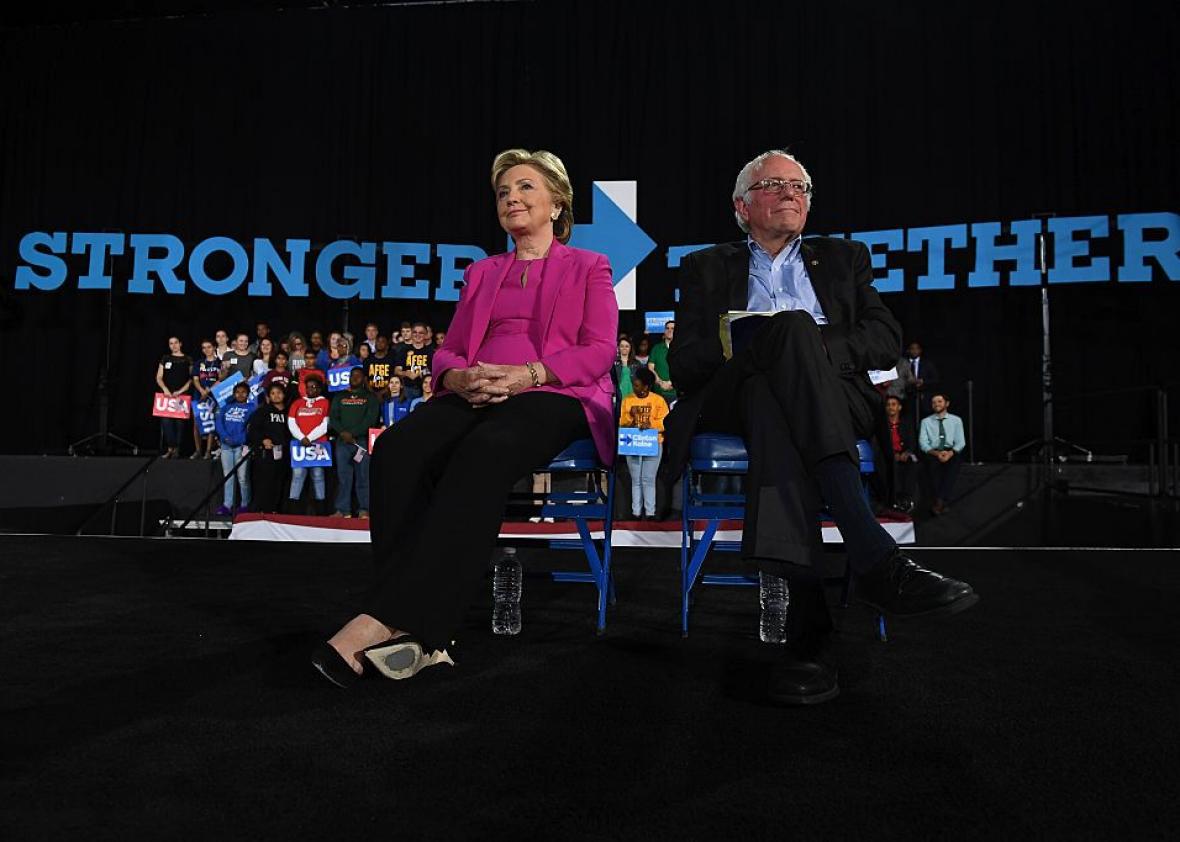Here are two things that have happened in recent days involving Hillary Clinton and Bernie Sanders.
1. A Twitter personality and former Hillary Clinton adviser named Peter Daou launched a website called “Verrit,” which bills itself as “Media for the 65.8 Million,” which is the number of people who voted for Clinton in 2016. According to its founder, Veritt exists to verify cold, hard facts in our era of fake news and Breitbart-ian propaganda. Over the weekend, Clinton publicly endorsed the site:
Here’s the kind of “fact” Verrit verifies, though:
Hmm.
2. A few excerpts of Clinton’s upcoming book What Happened (which comes out next Tuesday) have leaked. In one of them, she says that Sanders “resort[ed] to innuendo and impugning my character” in the 2016 primary, doing “lasting damage” to her public image (by “paving the way” for the “Crooked Hillary” attack, for instance) that contributed to her loss in the general election.
This is the grudge that won’t go away, not that Clinton’s critics on the left are any more ready to be concilliatory. And while perpetually hostile trolls like Daou are difficult to ignore, there is a version of the Clinton-ite case against the Bernie wing that’s not entirely unreasonable, which is: The Democratic Party, at a fundamental level, is composed of decent regular people who work hard for progressive political goals. Those people, pre-2016, generally supported Hillary Clinton’s candidacy because of her career-long commitment to said goals and were of the mindset that her general-election chances would be best served by a smooth primary. It was thus both unfair and unhelpful, the argument goes, for Sanders to paint the entire party institution as the vehicle for corrupt “millionaires and billionaires” during his anti-establishment campaign—and for observers like me to suggest, as I did last week, that there was something untoward about the way the party seemed to set up the primary to help Clinton.
The best version of the other side of that argument is that presidential nominations aren’t lifetime achievement awards and that Sanders’ popularity spoke to the real problems that many Democratic voters had with Clinton’s candidacy, with the party’s relatively moderate message, and with its uninspiring and/or crony-tastic leaders and power brokers. Whatever damage Sanders might have done to the Democratic brand, as it were, was justified by the need to shake up an institution that—however well-intentioned—has fared unacceptably poorly in recent elections at both local and national levels.
So, that is the beef in a nutshell! The good news is that new activist groups, new candidates, and an increasingly aggressive national message have already started to bridge the divide between the two camps in a constructive way. The bad news is that there won’t truly be any final resolution and healing of the Democratic Party’s 2016 wounds until the moment polls close on the West Coast on Nov. 3, 2020. And at that point, things might only just be getting started.
